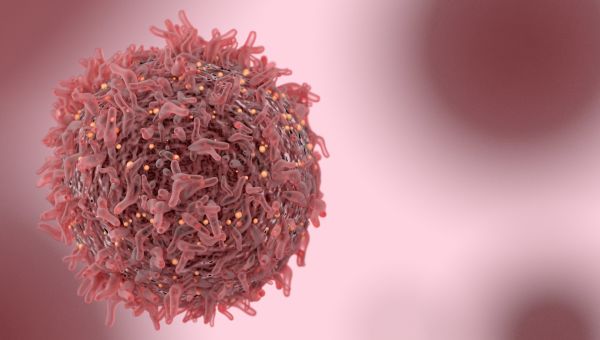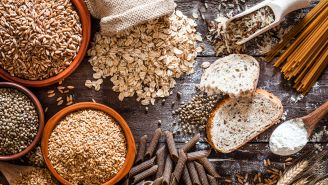6 chronic illnesses with surprising links to inflammation
The causes and consequences of long-term inflammation may surprise you.
Updated on September 30, 2024

Inflammation. It’s a buzzword used constantly in the news and on social media. The label, “anti-inflammatory,” can be found on beauty products and supplements. There’s even an anti-inflammatory diet. So, what exactly is inflammation? And is it always a harbinger of bad health?
Here’s what to know about the inflammation process and how it may influence your risk of six serious conditions.

Some inflammation is a good thing
Inflammation is an essential part of your body’s defense system. In fact, it’s how your immune system responds to a host of threats from small cuts and tiny germs to system-wide infections. Here’s an overview of how it works:
When your body senses it’s under attack, the inflammation process gets triggered. Blood rushes to the affected area (the site of the injury or infection), causing swelling, redness, and pain, among other effects. It might seem like unnecessary misery, but that blood flow brings germ-fighting immune cells and healing proteins to the area. It also cushions the spot, protecting it from further injury. Your capillaries (tiny blood vessels) may release plasma, as well, which is the liquid component of blood that transports cells. It helps open wounds to close.
As the germs are overpowered, or the wound heals, specialized cells come through to gobble up any dead germs or damaged tissues. Once cleanup’s complete, your immune system halts inflammation. (How long this process takes depends on several factors, such as the strength of the infection and your immune system.)

Sometimes inflammation doesn't stop
Sometimes, the immune system malfunctions and inflammation doesn’t stop after an injury or infection heals. Researchers are still learning exactly why this happens, but lifestyle factors like smoking, a poor diet, and chronic stress can make it more likely to occur. These factors can also trigger chronic, system-wide inflammation without any obvious, initial injury. If you’re using cigarettes daily, for example, the smoke and toxins are constantly aggravating to your immune system—even if you don’t feel it.
Chronic inflammation may eventually damage healthy tissues and raise your risk of illnesses like heart disease and cancer. Here’s how it influences your risk of six serious conditions.

Depression
“The exact relationship between inflammation and depression is still unclear,” says Lela Mansoori, MD, a hospitalist and endocrinologist in Denver, Colorado. “But we do know people with major depressive disorder have increased inflammatory markers. Research has also shown that if you get on an anti-depressant, it can decrease inflammation.” Medications that slow the immune system, decreasing inflammation, seem to improve depression symptoms, too.

Arthritis
Certain types of arthritis are caused by increased inflammation in the joints, such as rheumatoid arthritis or psoriatic arthritis. “There’s a strong connection between inflammation and autoimmune conditions like rheumatoid arthritis,” says Dr. Mansoori.
But it’s possible to put some types of autoimmunity into remission. Diet changes, self-care and exercise can have a profound impact on joint health, she explains. With rheumatoid arthritis, for example, the proper balance of rest and exercise is key:
- Rest when your symptoms are more severe to relieve pain and swelling.
- Exercise regularly between flare-ups to help control your symptoms over time and protect your mobility.
Not sure how to exercise with RA? A physical therapist can help you build a safe workout routine.

Dementia
“There is a correlation between inflammatory markers and dementia diagnoses, such as Alzheimer's disease,” says Mansoori. “It's just that it's difficult to tease out whether these are independent variables [two factors that exist at the same time, but don’t affect one another], or if inflammation is actually causing or contributing to the disease."

Cancer
“Your body makes cancer cells every day,” says Mansoori. “Normally, when one or two are floating around in your blood stream, your immune system takes care of them.” But if chronic inflammation is making your immune system malfunction, it may not be able to kill off those scattered cells.
Specifically, inflammation may cause DNA damage, according to the National Cancer Institute. That can interfere with the mechanism that tells your cells when it’s time to stop dividing. Without that mechanism, they may multiply uncontrollably, become cancerous and spread.

Migraine headaches
There's even some evidence that migraines, fibromyalgia, and chronic pain may be linked to inflammation, says Mansoori. Migraines are severe, throbbing headaches that often affect one side of the head, and may cause nausea, vomiting, light, and noise sensitivity.
Researchers are still learning about the exact causes of migraines, but they’re likely a result of numerous factors, including blood vessel changes and nerve inflammation.

Heart disease
It’s long been known that hardening arteries and sticky plaque buildup are the main reasons for heart disease, the number one cause of death in the United States. But they may not be the only forces at work. A growing body of research suggests inflammation might also play a key role.
Inflammation contributes to the buildup of plaque on artery walls. The immune system then responds to that plaque as a foreign, or threatening substance. It prompts even more inflammation to help wall off the plaque and contain the threat. If the walled-off plaque happens to rupture, its contents may leak out into the bloodstream. That can trigger the formation of a blood clot, which may then travel to the heart or brain, resulting in a heart attack or stroke.

Walker KA, Ficek BN, Westbrook R. Understanding the Role of Systemic Inflammation in Alzheimer's Disease. ACS Chem Neurosci. 2019 Aug 21;10(8):3340-3342.
Harvard Health Publishing. What is inflammation? April 12, 2021.
Cleveland Clinic. Inflammation. Reviewed March 22, 2024.
Pahwa R, Goyal A, Jialal I. Chronic Inflammation. Treasure Island (FL): StatPearls Publishing; 2024 Jan-.
Lee CH, Giuliani F. The Role of Inflammation in Depression and Fatigue. Front Immunol. 2019 Jul 19;10:1696.
Milaneschi, Y., Kappelmann, N., Ye, Z. et al. Association of inflammation with depression and anxiety: evidence for symptom-specificity and potential causality from UK Biobank and NESDA cohorts. Mol Psychiatry 26, 7393–7402 (2021).
NIH: National Institute of Arthritis and Musculoskeletal Diseases. Rheumatoid Arthritis. Reviewed November 2022.
Arthritis Foundation. Causes of Inflammatory Joint Pain. Accessed September 26, 2024.
Harris E. Brain Inflammation May Underlie Neuropsychiatric Symptoms of Dementia. JAMA. 2024 Jan 16;331(3):190.
Walker, K.A., Le Page, L.M., Terrando, N. et al. The role of peripheral inflammatory insults in Alzheimer’s disease: a review and research roadmap. Mol Neurodegeneration 18, 37 (2023).
National Cancer Institute. Chronic Inflammation. April 29, 2015.
Malhotra R. Understanding migraine: Potential role of neurogenic inflammation. Ann Indian Acad Neurol. 2016 Apr-Jun;19(2):175-82.
American Heart Association. Inflammation and Heart Disease. January 11, 2024.
Centers for Disease Control and Prevention. NCHS: Leading Causes of Death. Reviewed May 2, 2024.
More On


video

article


video

article

article
